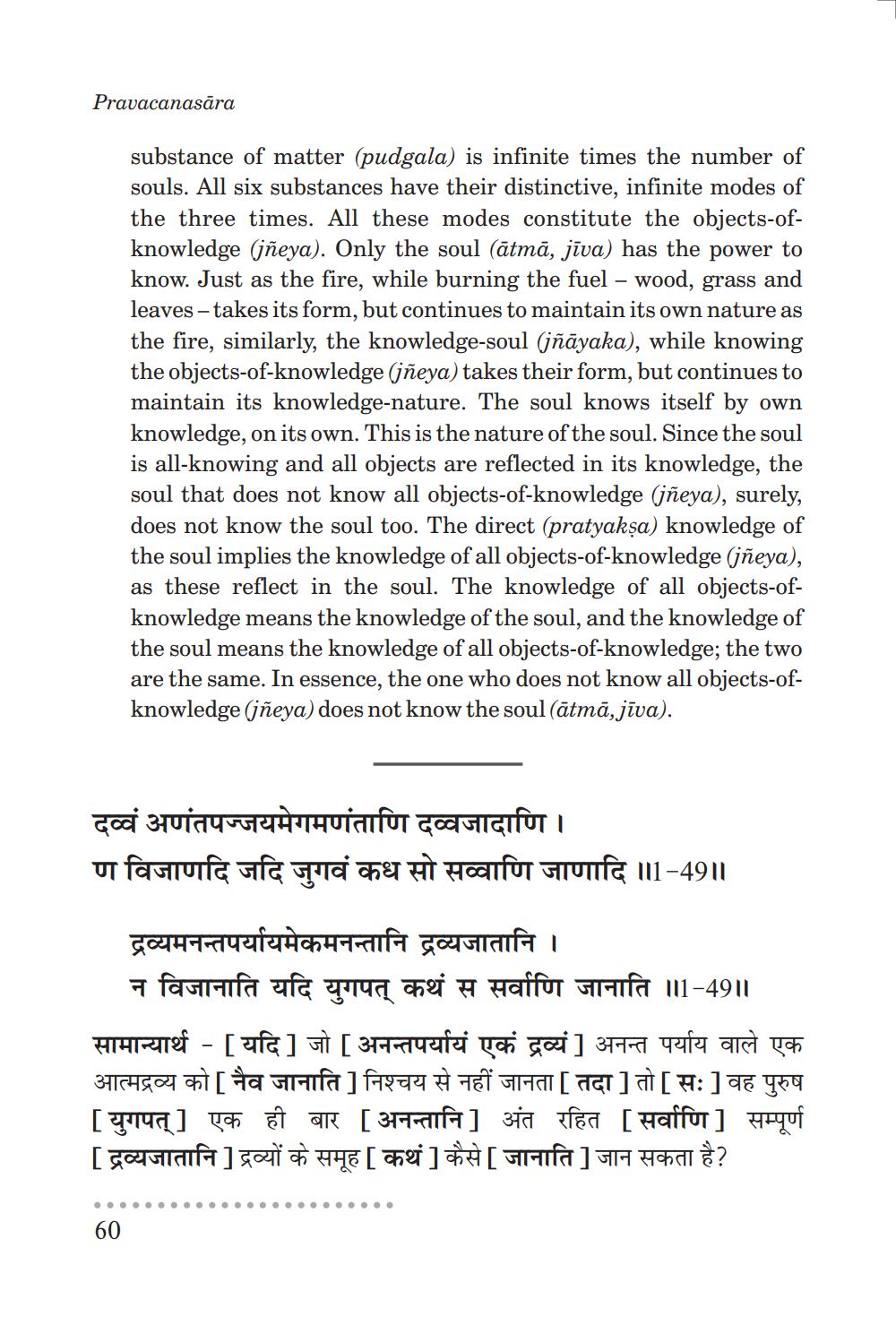________________
Pravacanasāra
substance of matter (pudgala) is infinite times the number of souls. All six substances have their distinctive, infinite modes of the three times. All these modes constitute the objects-ofknowledge (jñeya). Only the soul (ātmā, jīva) has the power to know. Just as the fire, while burning the fuel – wood, grass and leaves – takes its form, but continues to maintain its own nature as the fire, similarly, the knowledge-soul (jñāyaka), while knowing the objects-of-knowledge (jneya) takes their form, but continues to maintain its knowledge-nature. The soul knows itself by own knowledge, on its own. This is the nature of the soul. Since the soul is all-knowing and all objects are reflected in its knowledge, the soul that does not know all objects-of-knowledge (jneya), surely, does not know the soul too. The direct (pratyakşa) knowledge of the soul implies the knowledge of all objects-of-knowledge (jñeya), as these reflect in the soul. The knowledge of all objects-ofknowledge means the knowledge of the soul, and the knowledge of the soul means the knowledge of all objects-of-knowledge; the two are the same. In essence, the one who does not know all objects-ofknowledge (jñeya) does not know the soul (ātmā, jīva).
दव्वं अणंतपज्जयमेगमणंताणि दव्वजादाणि । ण विजाणदि जदि जुगवं कध सो सव्वाणि जाणादि 1-49॥
द्रव्यमनन्तपर्यायमेकमनन्तानि द्रव्यजातानि ।
न विजानाति यदि युगपत् कथं स सर्वाणि जानाति ॥1-49॥ सामान्यार्थ - [ यदि ] जो [अनन्तपर्यायं एक द्रव्यं ] अनन्त पर्याय वाले एक आत्मद्रव्य को [ नैव जानाति ] निश्चय से नहीं जानता [ तदा ] तो [ सः] वह पुरुष [ युगपत् ] एक ही बार [अनन्तानि] अंत रहित [सर्वाणि] सम्पूर्ण [ द्रव्यजातानि ] द्रव्यों के समूह [कथं ] कैसे [ जानाति ] जान सकता है?
........................
60




